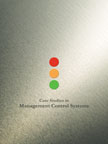Operations Management
 |
Details
Textbook:
Pages : 329;
Paperback;
210 X 275 mm approx.
Workbook:
Pages :
239; Paperback;
210 X 275 mm approx, Sample Applied Theory Questions
Courier charges extra
Pricing
Textbook Price: Rs. 900;
Workbook Price: Rs. 700;
Available only in INDIA
Detail Table of Contents
Click below to view
HTML
Aggregate Planning and Capacity Planningt : Chapter 9
SUMMARY:
Proper aggregate planning is the key to an organization’s performance. An aggregate plan defines a company’s production rates, workforce levels and inventory postition with respect to market demand and available capacity. Aggregate planning balances market demand and the production rate of the organization. This enables the organizations to reduce costs, and helps in optimizing the utilization of available resources. Proper implementation of the aggregate plan enables an organization to use all available resources to the fullest extent without overloading the production system. The success of an organization is to a large extent dependent on the way potentially productive resources such as equipment and people are utilized over a period of time.
|
|
and heuristic models such as the management coefficients model, and the computer search method. Capacity planning is an important aspect of aggregate planning. Capacity defines the maximum output possible from a system or a process. Master production scheduling process disaggregates the aggregate plans into individual products and generates a production schedule keeping in view the capacity requirements and capacity availability, raw material requirements and availability, etc.
Capacity planning is important for the organization as an organization’s performance can be affected by wrong estimates. To have an effective capacity plan, an organization has to identify current capacity and forecast the future requirements of capacity. Capacity of an organization can be expanded accordingly with increase in demand for the products and services.



